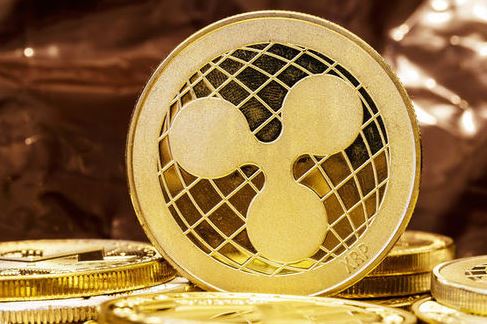There’s been a lot of talk about Ripple recently. But what is all the fuss about? What makes it stand out from other cryptocurrencies? Who developed it? Let’s take a look!
In this article, we will cover the basics of Ripple. Why it’s so hot, where to buy it, the best Ripple wallet, and the future of this intriguing coin.
What is Ripple and how does it work?
Ripple is both a payment network and cryptocurrency. The network has been designed to enable secure, instant and nearly free global financial transactions of any size with no chargebacks.
The Ripple platform has expanded beyond the digital currency, by creating a system for trading fiat currencies such as USD or EUR across its distributed ledger called the RippleNet. The RippleNet is managed by Gateways.
Gateways are essentially financial institutions that function as intermediaries between fiat currencies and the XRP Ledger – Ripple’s distributed ledger. However, Gateways clear IOUs denominated in either fiat currency direct to another Gateway or other trusted parties on the network using a cryptographically signed entry on the XRP Ledger.
Users of the RippleNet can send one currency (eg USD) to a fiat gateway, which then sends that USD back to the user in another currency (eg EUR), using XRP as an intermediary currency for a nominal fee. This is very useful in business because it enables users to make instant conversions between currencies without needing to wait for an international transfer to go through.
Why is Ripple different from other cryptocurrencies like Bitcoin and Ethereum?
Ripple is a very different beast from the likes of Bitcoin and Ethereum, which are decentralized peer-to-peer cryptocurrencies that aim to replace fiat currency. Ripple is centralized in that it was created by a company called Ripple Labs, who today own most of the XRP in existence. For some people, this makes Ripple very unattractive.
They see it as a corporate currency that is designed to be used by banks and large financial institutions, rather than individuals. This might be true; there are certainly signs of Ripple moving in this direction (for example, most payments with Ripple today involve large corporations). However, the distinction between Bitcoin and Ripple isn’t quite so black-and-white. Even Bitcoin doesn’t really belong to its users.
What are the benefits of using Ripple instead of traditional currencies, like the US dollar or Euro?
The most obvious benefit is that Ripple transactions settle very quickly. Some banks are already experimenting with Ripple to transfer funds between branches in different countries, and their internal transfers complete in a matter of seconds.
By contrast, wire transfers between banks can sometimes take days or even weeks to complete. With Ripple, however, the only thing you have to wait for is for the network to confirm that your transaction was valid.
Another benefit of Ripple is that it allows users and businesses alike to define not only how many funds they want to transfer, but also what path these funds will take. This means you could send $5 from your bank in France to a friend’s bank account in Japan, choosing to have your money pass through a certain number of intermediaries along the way, much in the same way you would send funds to a friend’s PayPal account.
It is for this reason that Ripple could become popular with cryptocurrency traders, who can use it not only to transfer funds internationally but also potentially profit from arbitrage by exchanging currencies at different rates along the way.
How to buy and store Ripple
There are several ways to purchase Ripple. Binance, Coinbase, Poloniex, Kraken and Bitfinex all offer the ability to trade between Ripple and other cryptocurrencies. Alternatively, you can purchase Ripple using an exchange like Bitstamp or Gemini that accepts fiat currency (USD, EUR etc.)
Once you’ve secured your Ripple tokens (XRP), the easiest way to store them is in a wallet available for the coin.
Best XRP wallets:
Xuum- An XRP based mobile wallet that also stores other coins
Edge- A mobile app-based wallet which caters to a vast number of coins
Rippex- A desktop wallet
MyEtherWallet- A browser-based Ethereum wallet which can store XRP and many other cryptos.
The future of Ripple and its potential impact on global economies
Ripple seems to have a promising future. It has huge potential for disrupting global banking and financial transactions. Ripple is already working with several banks to test out international money transfers using its blockchain technology. This will allow people to send funds across borders within a matter of seconds.
There is so much potential for XRP’s future because it’s not just a cryptocurrency. It is also a payment solution for banks and financial institutions that want to facilitate fast international transfers. This will allow people to transfer money across borders easily, which could positively affect the gross domestic product (GDP) of countries.
Thanks for reading!
You may be interested in: Ripple (payment protocol) – definition and meaning


